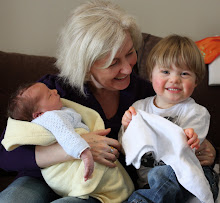I was reminded of this recently watching a video of Mark Pollock on the internet, and then again during his recent interview on the Late Late Show, where in the Project Walk Gym he is on a treadmill, held up right but a strange contraption, and two people, one on each side, are lifting his feet and mimicking the walking movement. Of course, in Mark’s case, paralysis is the issue, and his condition is severe. But this goes to show that for some people putting one foot in front of the other is not as easy as it seems.
A couple of weeks ago, I witnessed for the first time Cathal’s attempt at a “one-hand-holding-only” walk. His knees and ankles joints have weak ligaments, and at 3 years of age walking is still a major challenge for him. Standing up if fine, walking holding with 2 hands for a short distance is just alright, but any thing else is a major effort of balance, and requires great focus. And courage: I would not like to find myself attempting a room-crossing feeling all wobbly. It must be similar to trying to walk on a tight rope, even if only a few inches from the floor. So when I saw him holding on to his dad’s hand, and slowly, gingerly, purposefully, crossing the sitting room, going down the hall, negotiating the length of the front garden, crossing the road and finally reaching the car, I felt quite emotional.
Because in those few minutes I was reminded of Cathal’s difference: Nothing is simple for him, nothing is easy, nothing can be taken for granted. But I was also struck by his determination and that of his parents. It may take time, but with therapy, love and hard work, Cathal will walk, and run, on his own, like any other child. He just needs a little more time.
Ironically I took up walking after Cathal’s birth, and because of him will do my third Mini Marathon on June 6th. Unlike Cathal, my training this year has gone haywire through a series of uncontrollable circumstances. But, like Cathal, I am determined to do it and pass the finish line. I will not beat my own personal World Record this year, but I will get that medal. And the Down Syndrome Centre will get a few Euros as a result. All I need to do on the day is put one foot in front of the other.
NB: If you would like to sponsor me as I attempt to jog-walk-crawl the Women’s Mini Marathon on the 6th June, and give some much needed fund to the the wonderful organisation that is the Down Syndrome Centre, you can do so here.
Thank you.










